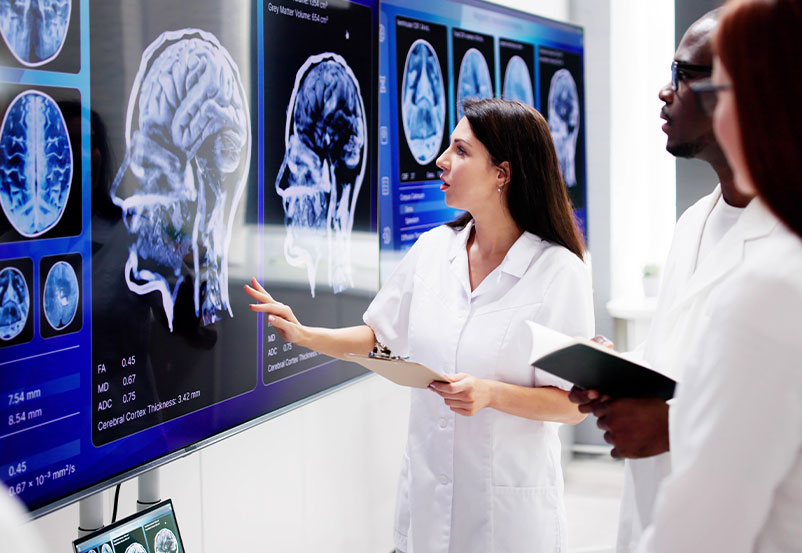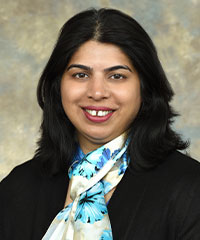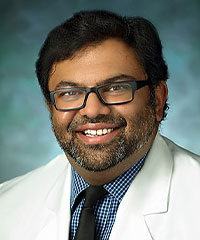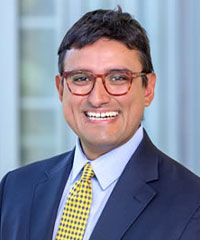Evidence with Recent Stroke Trials: The Role of Neuroimaging – What Radiologists Need to Know

Explore key outcomes of recent stroke trials and discover how neuroimaging techniques are shaping future trials during this free, one-hour webinar.
As a bonus, supplemental resources will be provided to webinar attendees.
Webinar details
Date & time: June 11; noon–1 p.m. CT
Price: Free
Join expert faculty for a one-hour review of recent randomized controlled trials investigating the efficacy of endovascular thrombectomy (EVT) for two patient populations: large core and medium vessel occlusion subgroups. Learn how neuroimaging shapes EVT trial eligibility as faculty critiques these studies and explores the implications for future trial design.
Learning objectives
- Review neuroimaging criteria used in the five major large core ischemic stroke trials
- Evaluate the role of neuroimaging for eligibility in the three medium vessel stroke trials
- Examine future directions where neuroimaging can be more optimally utilized in future trials
Planner/moderator

Achala Vagal, MD, MS
University of Cincinnati
Achala Vagal, MD, MS, is a tenured professor of radiology, executive vice chair and vice chair of research in the Department of Radiology at the University of Cincinnati (UC), associate dean of clinical and translational research at UC College of Medicine, and co-director of the Center for Clinical and Translational Science and Training (funded by the National Center for Advancing Translational Sciences). Dr. Vagal has expertise in neuroimaging of cerebrovascular diseases and extensive experience in leading imaging core labs for large, multicenter trials.
Planner/faculty

Vivek Yedavalli, MD, MS
Johns Hopkins University School of Medicine
Vivek Yedavalli, MD, MS, is an associate professor of radiology and neurology, director of stroke, neurovascular, and perfusion imaging at Johns Hopkins Hospital, chief of neuroradiology at Johns Hopkins Bayview Medical Center, and assistant director of the Department of Radiology Physician Scientist Incubator Program.
Dr. Yedavalli has been recognized nationally as a translational stroke and perfusion imaging researcher and physician-scientist. Within his first two years at Johns Hopkins, Dr. Yedavalli received the RSNA Seed Grant for MRI spectroscopy in subacute ischemic stroke, followed by the inaugural Johns Hopkins RAD-PSI internal grant supporting his stroke research. The next year, he earned the RSNA Scholar Grant for applying AI to CT perfusion in acute ischemic stroke collateralization. Dr. Yedavalli uses a balanced teaching approach with trainees (with focused learning while maintaining autonomy) for a more productive learning environment.
Faculty

Gustavo A. Mendez, MD
University of Colorado School of Medicine
Gustavo A. Mendez, MD, is an assistant professor in neuroradiology at the University of Colorado School of Medicine. Dr. Mendez has a clinical and research focus on stroke and neurovascular imaging. He leads stroke education and multidisciplinary conferences at the University of Colorado. Dr. Mendez completed his diagnostic radiology residency at the University of Chicago and his neuroradiology fellowship at Stanford University.
Accreditation statement
The Radiological Society of North America (RSNA) is accredited by the Accreditation Council for Continuing Medical Education (ACCME) to provide continuing medical education for physicians.
Designation statement
The RSNA designates this Other activity (live and enduring material) for a maximum of 1.00 AMA PRA Category 1 Credits™. Physicians should claim only the credit commensurate with the extent of their participation in the activity.
Continuing education information
To earn CME credit, participants must watch the full length of the webinar, as well as complete the course evaluation.
Disclosure statements
RSNA controls the planning, development, and delivery of this CME activity and will strictly adhere to the Standards for Integrity and Independence in Accredited Continuing Education established by the Accreditation Council for Continuing Medical Education (ACCME).
Listed below are all the financial relationships provided by individuals in a position to influence and/or control CME activity content. All financial relationships listed for these individuals have been mitigated. Please note that any individuals not listed below have reported no financial relationships (currently or within the past 24 months) the ACCME defines any ineligible companies (formerly known as commercial interests) as “those who primary business is producing, marketing, selling, re-selling, or distributing healthcare, products used by or on patients”.
- Achala Vagal, MD: Consultant, Cerebra AI
- Gustavo Mendez, MD: Speaker, Amgen Brazil; Speaker, Novartis Brazil
RSNA disclaimer
The opinions or views expressed in this activity are those of the presenters and do not necessarily reflect the opinions, recommendations or endorsements of the RSNA. Participants should critically appraise the information presented and are encouraged to consult appropriate resources for information surrounding any product or device mentioned. Information presented, as well as publications, technologies, products and/or services discussed, are intended to inform the learner about the knowledge, techniques, and experiences of RSNA faculty who are willing to share such information with colleagues. The RSNA disclaims any and all liability for damages to any individual user for all claims which may result from the use of said information, publications, technologies, products and/or services, and events.